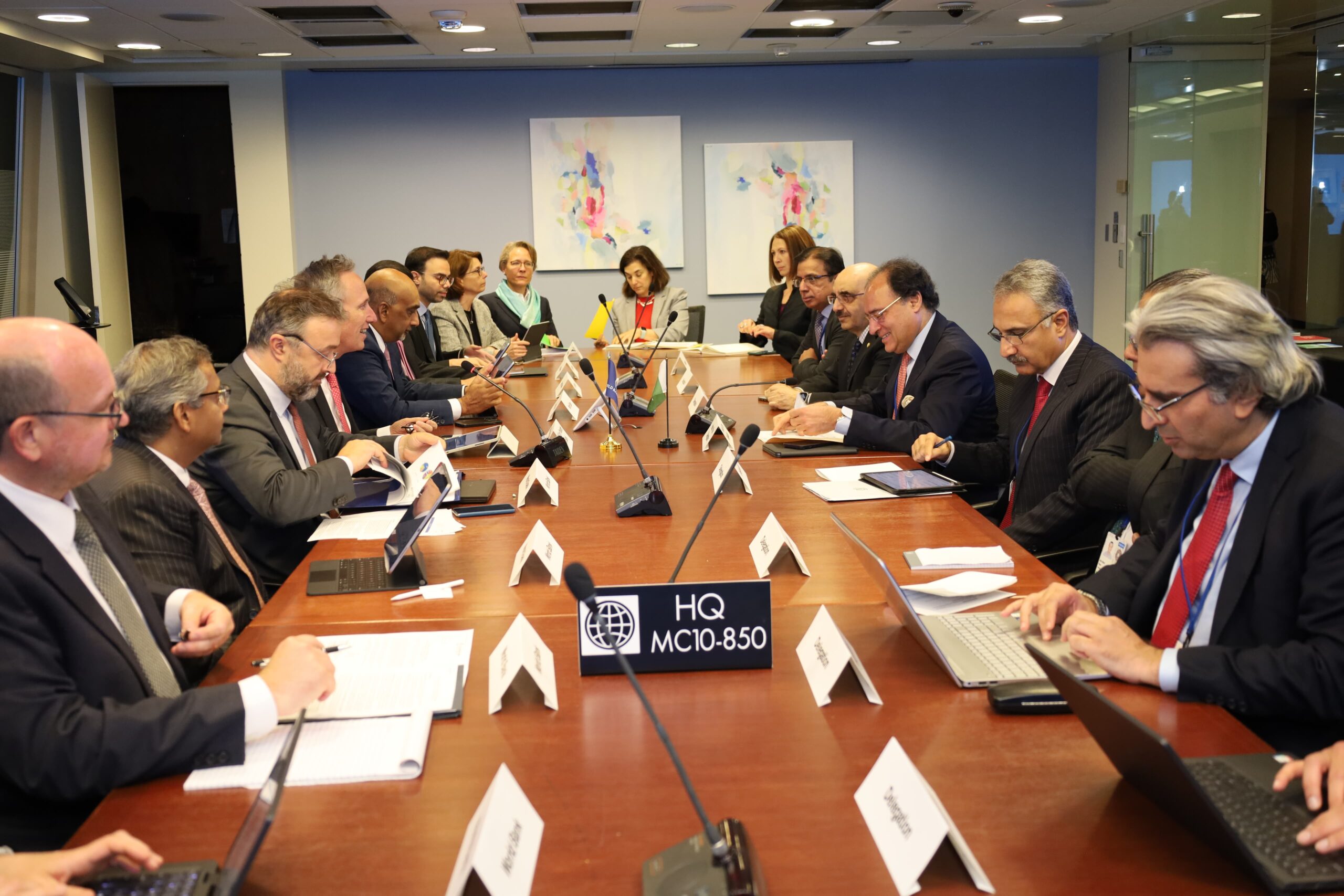Mohsin Siddiqui (Chief Reporter)
Finance Minister Muhammad Aurangzeb addressed the Senate on Tuesday, revealing that loss-making state-owned enterprises (SOEs) are imposing a staggering burden of one trillion rupees on the national exchequer annually.
He emphasized that the federal government requires parliamentary support to pass legislation related to the privatisation of these non-profitable SOEs.
“The loss-making SOEs contribute 1 trillion rupees of drag to the exchequer—money we could use in many other essential areas. We need your help to address this issue,” the finance minister stated during a house meeting. He called upon parliament to back upcoming privatisation legislation, adding that this support would be essential for reform.
The minister’s remarks were in response to a question posed by Zarqa Suharwardy Taimur from the Pakistan Tehreek-e-Insaf (PTI) party during the Senate’s question hour. He stressed that the government’s plan to address the losses sustained by SOEs would involve legislative action, and parliament’s cooperation would be critical to moving forward.
Responding to a question by Anusha Rahman of the Pakistan Muslim League-Nawaz (PML-N), Finance Minister Aurangzeb clarified that the Cabinet Committee on SOEs, rather than the Finance Ministry, is responsible for determining which SOEs are strategic, essential, or suitable for privatisation.
“The governance structure for strategic and essential SOEs will be implemented under the SOEs Act. This means the majority of governance will be managed by the private sector, while political appointees and government nominees will be in the minority,” he explained.
The minister also revealed that the Cabinet Committee would soon decide the fate of the Trade Development Authority of Pakistan (TDAP), hinting that more SOEs may face privatisation or restructuring in the near future.
In his Senate address, Finance Minister Aurangzeb warned that the current pension system for retired government employees represents a “ticking bomb” for Pakistan’s financial health. He stressed the urgency of legislative reform to address the escalating costs associated with pension payments.
“This is not a small issue. The pension system has been a point of discussion for decades, and it’s time we stop the bleeding. Starting this year, all new government employees must adjust to these changes,” he said.
Aurangzeb highlighted the importance of legislation to ensure that the pension system becomes sustainable and does not continue to drain public finances in the long term.
On the financial front, the minister informed the Senate that the Federal Board of Revenue (FBR) issued Rs 52 billion in tax refunds on July 1, 2024, marking the beginning of the new fiscal year. Additionally, sales tax refunds amounting to Rs 152 billion have already been issued, according to Aurangzeb.
“We believe it is essential that the liquidity of exporters is not negatively impacted by delays in refunds,” he said, emphasizing the importance of maintaining cash flow for businesses contributing to Pakistan’s export economy.
Aurangzeb also provided a positive update on the country’s debt management. He noted that Pakistan’s debt-to-GDP ratio had fallen from 77 percent in June 2020 to 67 percent in the current fiscal year. He attributed this decrease to improved financial discipline, adding that the increase in debt percentage dropped from 30 percent in FY21 to 15 percent this year.
Finance Minister Aurangzeb lauded the contributions of noted economists Qaiser Bengali and Ishrat Hussain in preparing a roadmap for rightsizing in various government departments. He stated that the rightsizing committee he heads is currently focusing on six ministries.
He denied rumors that the rightsizing efforts would disproportionately impact employees in grades 1 to 16, stating that the government is taking a balanced approach in its efforts to optimize the workforce across all levels of employment.
Commerce Minister Jam Kamal also addressed the Senate, revealing that the federal government is preparing to announce the Trade Policy 2025. This policy will soon be presented to the standing committees of parliament for approval.
Kamal reported that textiles and apparel exports saw a slight increase of 0.93 percent during FY 2023-24 compared to the previous fiscal year. This modest growth comes as the government seeks to strengthen its export sector to drive economic recovery.
During the Senate session, Pakistan Peoples Party (PPP) Parliamentary Leader Sherry Rehman raised concerns over proposed changes to the Indus River System Authority (IRSA) Act of 1992. Along with other PPP senators, she expressed alarm that the amendments could negatively impact agricultural production in Sindh.
Poonjo Bheel, one of the joint movers of the calling attention notice, further questioned the legitimacy of the Water Resources Ministry after the passage of the 18th Constitutional Amendment.
Responding to these concerns, Water Resources Minister Musadik Malik reassured the Senate that no law deemed unsuitable for any province would be enacted. He emphasized that the government seeks input from all parliamentary stakeholders, including the opposition, before moving forward with any legislation related to water resources.




